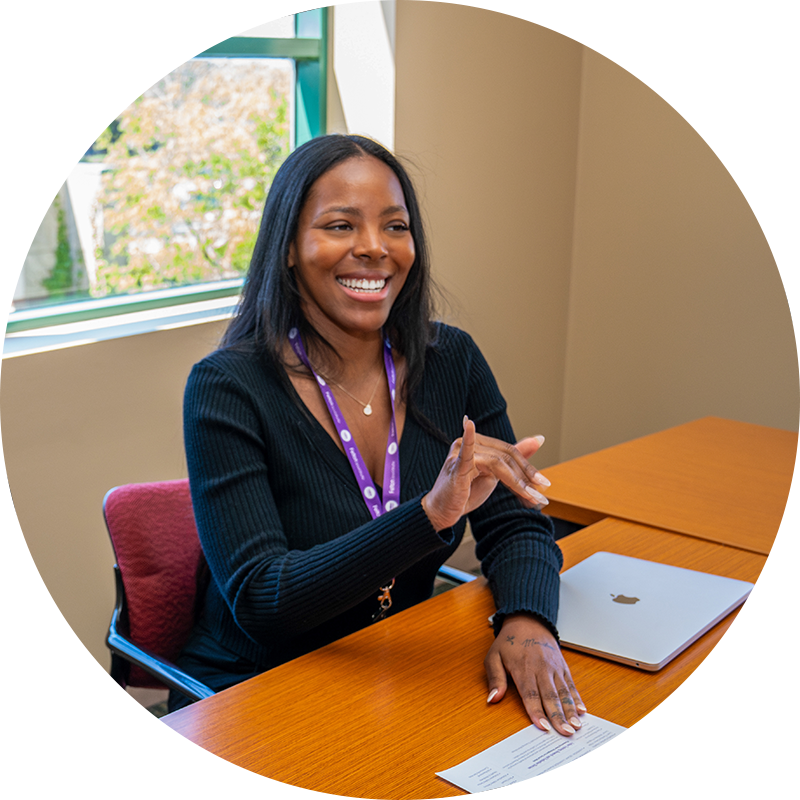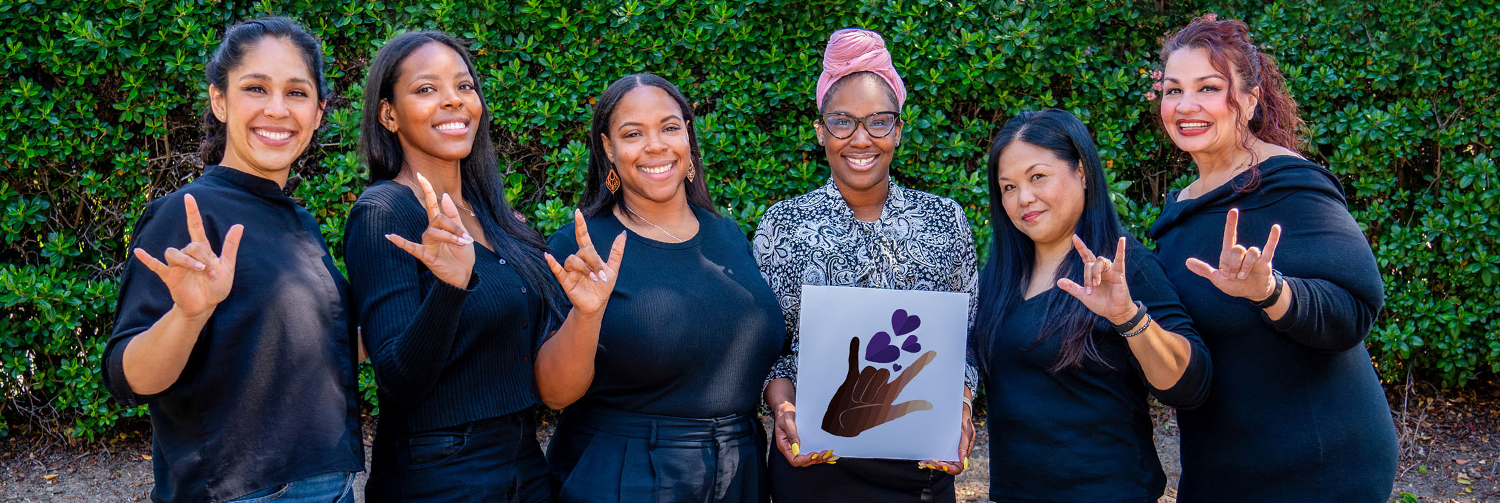The Black Deaf community has an enduring legacy of resilience, tradition, and culture. Their stories are interwoven into the fabric of America’s history. Their lived experiences and methods of communication have shifted throughout the centuries, impacted by slavery, segregation, and the advancements of civil rights and racial equity. One such example is Black American Sign Language (Black ASL) a dialect of American Sign Language (ASL) that developed at residential schools for Black Deaf students during the segregation era in the southern United States. Initially formed out of separation, Black ASL became a language of cultural expression that binds Black Deaf individuals. In the present day, the importance of inclusivity and communication extends to mental health support for the Black Deaf community who have historically faced barriers to mental health access. Felton recently spoke with Black ASL scholar Dr. Joseph Hill about the history of Black ASL and Monie Gwaltney, Program Supervisor for Felton’s Deaf Community Counseling Services (DCCS), about empowering members of the Black Deaf community.

Black ASL Scholar Dr. Joseph Hill
The Black Deaf community has historically faced dual barriers of racism and ableism. Beginning in the 1860s, Deaf schools were segregated, some of which didn’t de-segregate until the 1970s In addition, The National Association of the Deaf (NAD), prohibited Black membership until 1964. Black ASL scholar Dr. Joseph Hill, who will begin his tenure as Director of the Center for Black Studies at Gallaudet University this summer, explained “Black sign language is based on the history and the community ’s language practice,” adding that in the following decades after desegregation, the emerging feature of Black ASL is an intermingling of languages between ASL, Black ASL, and African American English which is known as AAE. In the 1880s, white Deaf schools began teaching students oralism, which emphasized teaching Deaf students to speak and lip-read with less emphasis on signing. Historically restricted from attending these schools, Black ASL students placed more emphasis on signing. It is, as Dr. Hill said, a more ‘preserved’ language. It’s a language that reclaimed agency and bodily autonomy for Black Deaf individuals empowering them to communicate and connect with others, in the face of adversity and segregation.
In the present day, communication and connecting with each other and the community extends to mental health. Reflecting the communities they serve, Deaf Community Counseling Services (DCCS) provides mental health counseling empowering all their clients, including Black Deaf individuals. The program provides a space and community where clients can communicate their mental health needs and lived experiences through therapy, classes, and workshops.

Monie Gwaltney, DCCS Program Supervisor
DCCS empowers Deaf & Hard of Hearing clients to live self-sufficient lives through a transformative focus on their overall well-being. Communication barriers, historically much like Black Deaf individuals experienced in different forms, can affect a Deaf client’s ability to seek mental health support. Program Supervisor Gwaltney explained that individuals can “feel isolated and depressed because they can’t actively participate in the way that hearing people can.” DCCS seeks to overcome these barriers with therapy and community engagement that “provides therapy and workshops where they can connect with other Deaf and Hard of Hearing folks.” DCCS also reflects the community it serves by providing Black Deaf therapists. Ms. Gwaltney explained the importance of this component of care, stating “Clients want to be able to get support from a person who looks like them, who has an understanding of the culture that they come from because it’s easier to connect with them, and it’s easier for that person to empathize with them.”
Inclusivity and shared experiences are paramount in connecting with each other, the community, and beyond. The legacy of Black ASL is a testament of resilience and connection to each other and the outside world in the face of racism and ableism. In the present day, DCCS uplifts clients through by providing connection and support through communication that addresses mental health needs.
For more information about Felton Institute’s Deaf Community Counseling (DCCS) program, visit their program page at felton.org/DCCS. You can also contact them directly via email at dccs@felton.org or by calling (415) 255-5854 (Video Phone).
Felton Institute responds to the needs of our community by providing innovative, evidence-informed social services to transform lives. Our organization offers 50+ programs that address mental health, the unhoused, early care and education, those impacted by the justice system, transitional age youth, as well as aging adults. Our award-winning programs, which have been recognized as national models, combine the latest scientific research with cultural sensitivity and a deep commitment to supporting and reflecting the communities we serve.
Founded in 1889, Felton is the oldest secular non-profit social services provider in the City and County of San Francisco. We have expanded our services across most Bay Area counties and continue to be at the forefront of pioneering new approaches to meet the emerging needs of underserved populations.
We know what it looks like to successfully build community.
We foster impactful change by strengthening the community as a premiere service provider. We also strengthen other service providers by supporting them in their fiscal, human resources, communications, IT and overall agency operations. With Felton’s support, they are able to focus on providing the best services to their clients, doing the work they were meant to do.
Felton empowers the community and ensures successful outcomes to all we engage with.
Felton Institute is a tax-exempt organization registered 501(c)(3) nonprofit under EIN 94-1156530.
